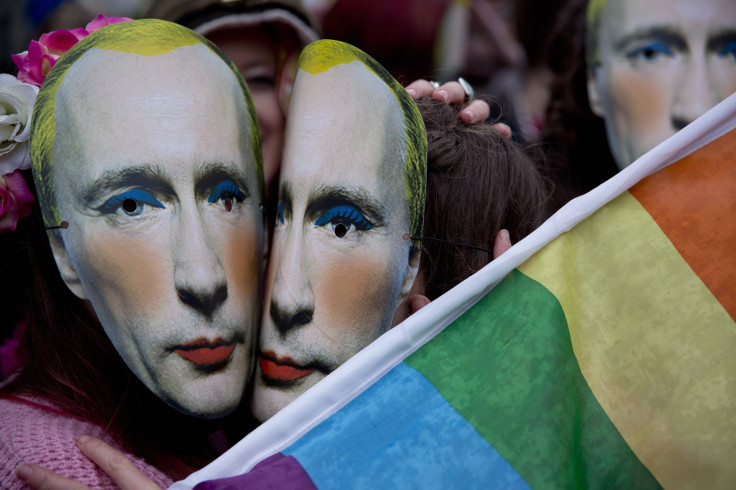Putin Drag Memes Are Now Illegal In Russia

An image of Russian President Vladimir Putin in drag used by protesters and internet users has been declared illegal by the Kremlin — because the popular meme suggests Putin might be gay.
The banned images, which typically depict Putin in heavy and colorful makeup, were widely disseminated during 2013 protests against anti-gay laws that made it illegal to provide homosexual "propaganda" to anyone under 18. The law has been seen as an effective ban on homosexuality in public space.
The manipulated image was added to the Justice Ministry's list of "extremist" materials last week. That list is now 4,074 items long, the Guardian reported.
Read: Are Russia And The US Going To War? Putin Orders More Drafted Troops
The move was a response to a May 2016 court ruling that banned more than a dozen images uploaded to a social networking site by a man named A.V. Tsvetkov, the Moscow Times reported. The graphics included depictions of Putin and Prime Minister Dmitry Medvedev in Nazi uniforms, as well as an image of Putin in drag that court records said hinted "at the Russian president's allegedly nonstandard sexual orientation," the Times wrote.
This was not the first time Russia has sought to control memes. Three years ago, Russia required all bloggers with more than 3,000 daily readers to register with the government.
Then, in 2015, Russia media agency Roskomnadzor said it was illegal to publish any image that depicted a public figure in a manner that contradicted their actual "personality." The announcement was in response to a lawsuit by Russian singer Valeri Syutkin, who sued the Vkontakte social media platform over a meme that put another another artist's lyrics over his picture.
“These ways of using [celebrities’ images] violate the laws governing personal data and harm the honor, dignity and business of public figures,” Roskomnadzor said in a statement, according to the Washington Post.
© Copyright IBTimes 2025. All rights reserved.






















